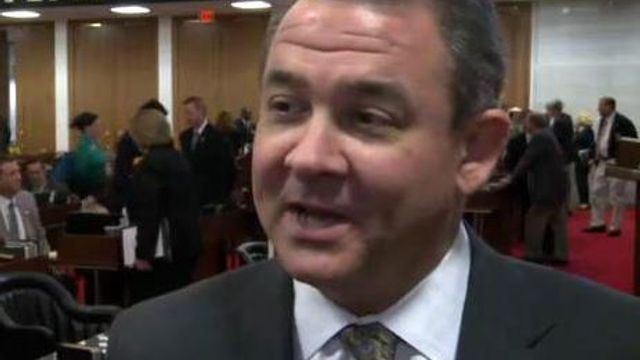Sunshine Amendment slowed
A fast-tracked proposal for a constitutional amendment protecting public access to records and meetings screeched to a halt in the House today.
Posted — UpdatedA fast-tracked proposal for a constitutional amendment protecting public access to records and meetings screeched to a halt in the House today.
Critics of the measure complained the bill was rushed through the committee process without sufficient inspection or debate. “Any concerns or objections were brushed aside,” said House Minority Leader Joe Hackney, D-Orange.
Bill Faison, D-Orange, tried to amend the measure to change it from a constitutional amendment into a regular statute. Faison told the House H87 would set a terrible precedent by creating a constitutional provision that lawmakers can override anytime they want to.
Hackney agreed. “This is indeed one strange animal of a constitutional amendment. It is badly, badly drafted,” Hackney said, warning that the lack of scrutiny the measure received could lead to unforeseen conflict with existing laws. “At least if we make it a statute, we can clean it up in later years.”
But bill sponsor Stephen LaRoque, R-Lenoir, said such a change “would gut the bill,” and isn’t necessary, since the bill only restricts future actions. “What is in the law now is irrelevant to this amendment. It’s there. We’re not changing any law with this amendment.”
It may have been the bill’s friends, not its enemies, that slowed it down today. LaRoque had the measure pulled off the floor and rescheduled for next week after House Majority Leader Skip Stam, R-Wake, successfully amended it.
Under Stam’s amendment, which passed unanimously, the constitutional right to open records would be granted to “every natural person who is a citizen of the state” - not to corporations, non-citizens, or out-of-state people seeking records. But after the vote, questions were raised about whether the amendment was itself constitutional.
LaRoque stopped debate on the measure and postponed the vote till Tuesday’s session. Here’s his explanation.
Copyright 2024 by Capitol Broadcasting Company. All rights reserved. This material may not be published, broadcast, rewritten or redistributed.





